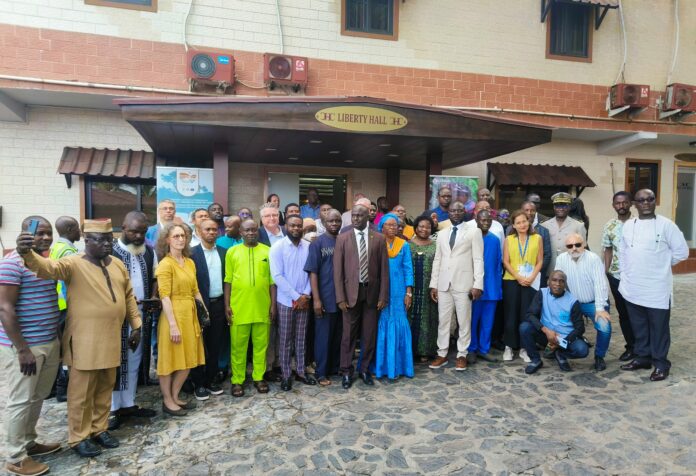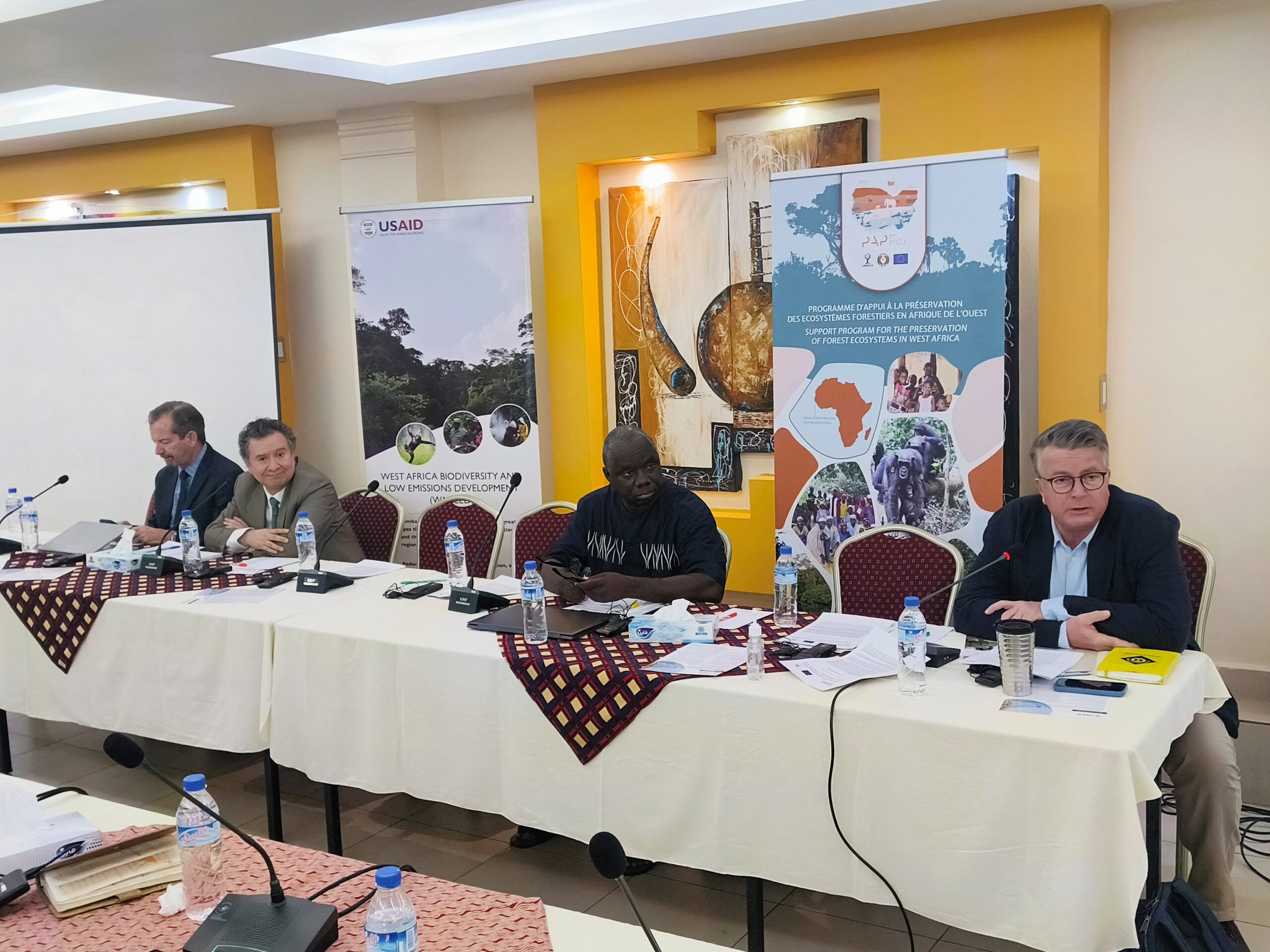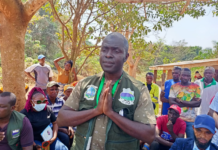
In West Africa, where cocoa production is expanding at the expense of tropical rainforests and governments face challenges to promote forest protection, two global partners have teamed up to explore solutions for developing the cocoa sector while also preserving the forest.
The European Union-funded Support Programme for the Preservation of Forest Ecosystems in West Africa (PAPFor) and the United States Agency for International Development (USAID)-funded West Africa Biodiversity and Low Emissions Development (WABiLED) Program are regional programs being implemented in transboundary forest landscapes in West Africa. To support and improve the sustainable production of cocoa alongside the protection of these forests, and provide the necessary support for governments and partners, both programs collaborated to organize a workshop on the state of play of initiatives and tools promoting the co-existence of forest conservation and the environmentally friendly development of cocoa in West Africa.
The workshop brought together over 80 participants from donor institutions, government ministries, conservation organizations, and the private sector from across West Africa.
Also, in attendance were officials from the West African Economic and Monetary Union (UEMOA), the Mano River Union (MRU), and the Economic Community of West African States (ECOWAS).
In his opening remarks, Mr. Jerry Yonmah, Liberian Forestry Development Authority (FDA) Technical Manager, said, “According to the National Reform law of 2006, the FDA is required under Section 9 to place under protection 1.5 million hectares of remaining forests in Liberia. Based on that, Liberia proposed forest areas to be set aside as protected areas.
These areas are located mostly in the southeast and northwest of the country. The protected areas in the southeast are under immediate threat of uncontrolled cocoa development.”
In his remarks, Mr. Laurent Delahousse, Ambassador of the European Union (EU) Delegation to Liberia, said, “The EU welcomes this collaboration to create a synergy that has complementary approaches, solutions, and actions from other important donors like USAID.

The EU will intensify operations with like-minded partners in the future. I am also pleased to see that we are finally promoting a multi-disciplinary approach to conservation. We have been seeking to internalize and integrate conservation and climate change concerns in the agricultural sector and we will continue to do so.”
“It is important to involve the private sector to form private partnerships as we look forward to achieving sustainable co-existence of cocoa in forest and conservation. We need to look for sustainable ways in the long run where the consistency of cocoa, forestry, biodiversity, and climate change are all together. USAID has been making investments in Liberia as well as in the region”
-Conrado Garcia, Natural Resources Officer, USAID Liberia-
The workshop was particularly timely as the EU recently passed a new law, the Deforestation-Free Regulation, which outlines specific standards for cocoa that must be met to be marketed in the European Union. It is also in line with the USAID-supported ECOWAS appeal for an ambitious global response to the biodiversity crisis and the Abuja declaration of October 2022.
During this, strategic areas of intervention were identified as pillars for combating biodiversity loss, restoring ecosystems, and achieving the contribution of ECOWAS countries to the designation of 30% of land and ocean areas as protected worldwide by 2030.






















